Vocabulary Building Normal Phonics Worksheets for Ages 8-9
5 filtered results
-
From - To
Unlock your child's potential with our Vocabulary Building Normal Phonics Worksheets for ages 8-9! These expertly designed worksheets provide a fun and engaging way for young learners to strengthen their phonics skills and expand their vocabulary. Each activity is tailored for this age group, promoting both listening and spelling abilities through friendly exercises that captivate and educate. Our worksheets are perfect for systematic learning at home or as supplementary material in the classroom. Get started today and help your child progress confidently on their educational journey with resources that foster literacy and a love for learning.
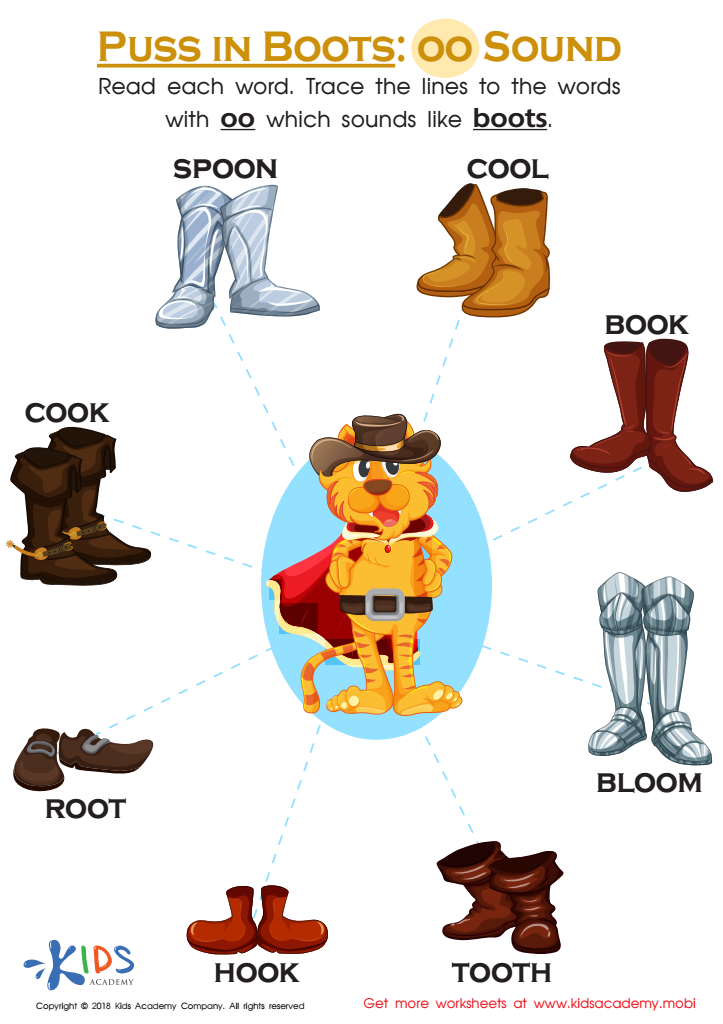

Puss in Boots: OO Sound Worksheet
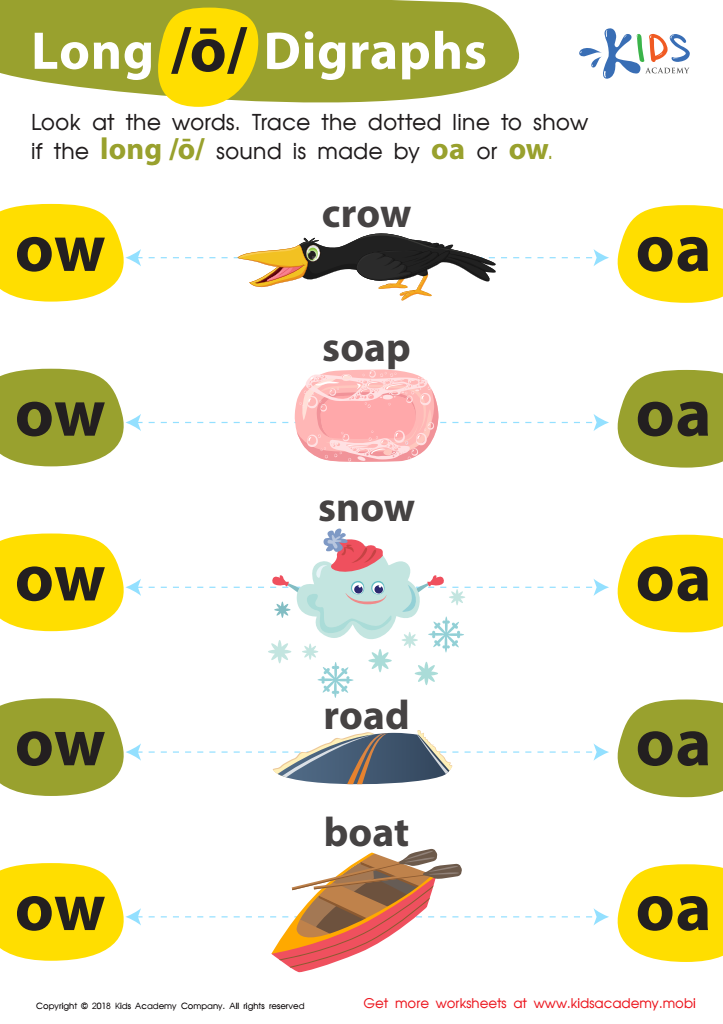

Reading: Long O Digraphs Worksheet
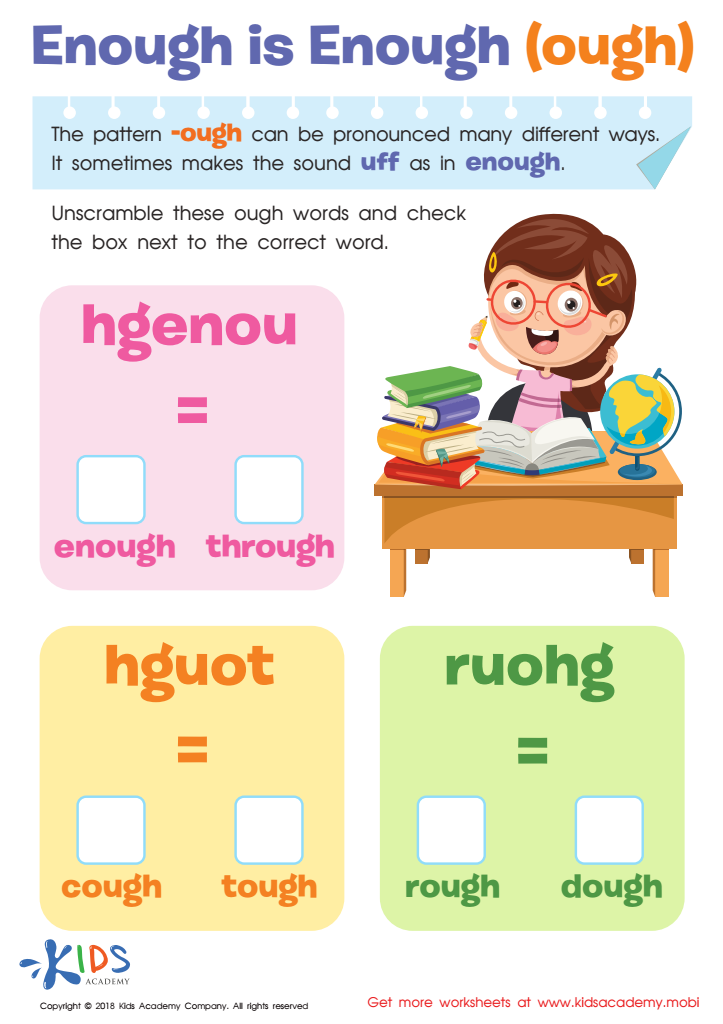

Enough Is Enough (ough) Worksheet
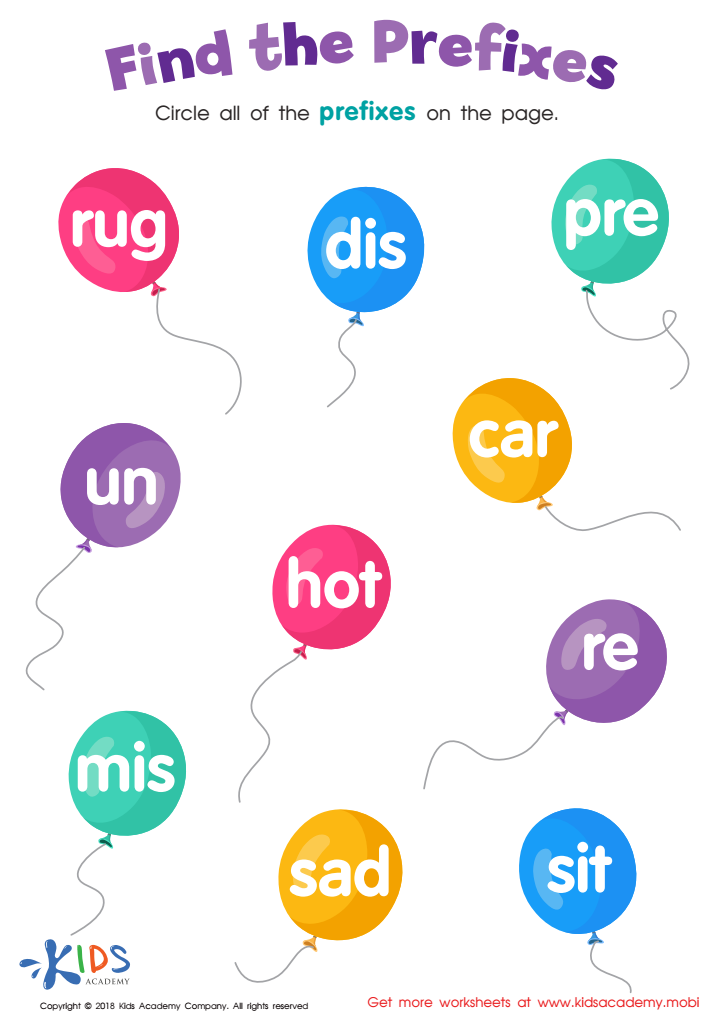

Reading: Find the Prefixes Worksheet
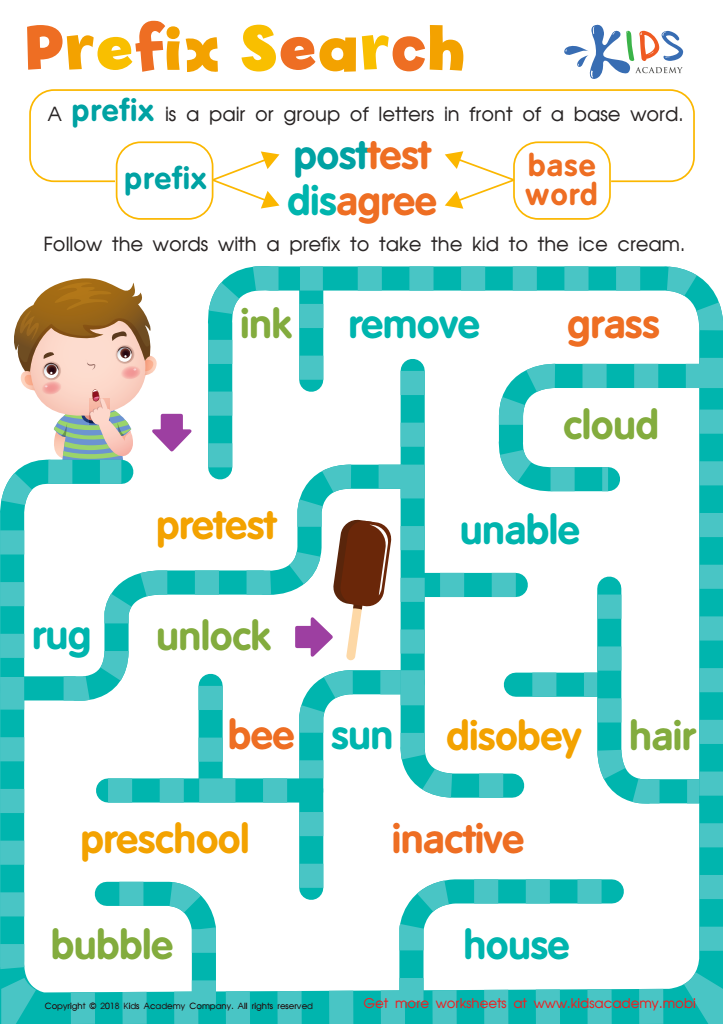

Reading: Prefix Search Worksheet
Vocabulary building and normal phonics development are crucial for children aged 8-9, as they serve as the foundation for fluent reading and comprehension skills, both of which are essential for academic success and lifelong learning. This formative period marks a transition from learning to read to reading to learn, making the acquisition of a robust vocabulary particularly important.
By expanding their vocabulary, children are better equipped to understand and process new information. This not only aids in reading comprehension across all subjects, including science, mathematics, and social studies, but also enhances their ability to communicate effectively in both spoken and written form. Proper phonics instruction helps them decode words efficiently, paving the way for smoother and more meaningful reading experiences.
Moreover, a rich vocabulary and strong phonics skills foster cognitive development. They stimulate critical thinking, problem-solving, and memory—all key components of higher-level thinking. Children who excel in these areas are often more confident in their academic abilities and are more likely to engage actively in classroom activities.
For parents and teachers, prioritizing vocabulary building and phonics is an investment in a child's educational journey. It equips them with the tools they need to navigate increasingly complex texts and concepts, laying the groundwork for future success in school and beyond.
 Assign to My Students
Assign to My Students















